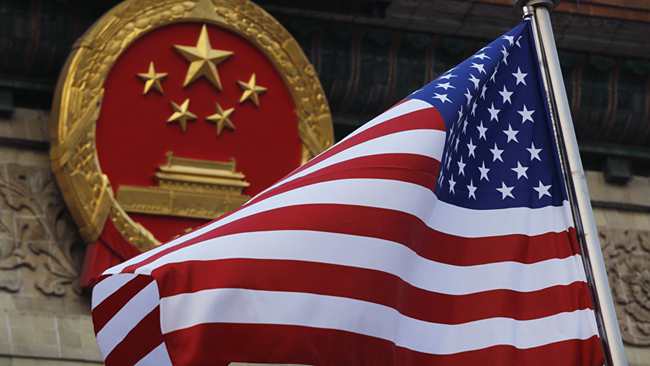A deep dive into Chinese news by the ostensibly neutral American media platform “The China Project” (formerly known as SupChina) announced its imminent closure due to insufficient funding, leaving many intellectuals and media professionals in the English-speaking world deeply disappointed. In theory, amidst the rapidly deteriorating relations between China and the United States, a media platform providing objective information would have a greater market demand and attract more funding. However, the reality is quite the opposite.
On November 6, the editor-in-chief of The China Project, Jeremy Goldkorn, announced on the official website the financial challenges the platform is facing, accompanied by a “囧” character, symbolizing embarrassment. Goldkorn mentioned that The China Project has been repeatedly accused in both China and the United States of “working for the evil purposes of the other government.” This not only led to significant legal expenses for defense but, worse still, made it increasingly difficult to attract investors, advertisers, and sponsors.
Goldkorn stated that while The China Project’s subscription numbers showed strong and steady growth, it was not sufficient to sustain operations. The main issue lies in “attacks from various parties due to political motives, making our situation even worse.” The CEO, Bob Guterma, emphasized to Reuters that the company’s business model is sound, but “economic and geopolitical factors have led to a sharp decline in investor interest.”
Goldkorn insisted that he would not compromise his values for funding, and after learning that the reliable source of funding could not materialize, the decision to close had to be made. Goldkorn’s remarks reflect the dilemma faced by media professionals in navigating a neutral path amid the competition and geopolitics between China and the United States. The significant differences in political systems, ideologies, and even views on civilization are core reasons the United States sees China as a competitor.
The more polarized and dualistic content tends to attract attention and survive better. Attempting balanced reporting and maintaining neutrality, on the other hand, often leads to suspicion and criticism. Experts and scholars from both China and the United States had previously pointed out that the increasing tension between Washington and Beijing might silence moderate perspectives.
Founded in 2016 as a current affairs newsletter, The China Project was originally named SupChina and was rebranded as The China Project on September 1, 2022. Besides Goldkorn and Guterma, key team members included podcast director and host Kaiser Kuo and founder/chairman Anla Cheng.
According to public information, Kaiser Kuo had previously worked in international PR roles at Baidu and Youku and was the founder of the Tang Dynasty band. The China Project, active in claiming to “report on China without fear or favor,” faced attacks from both China and the United States.
Last October, the U.S. news website Semafor published an article stating that Republican hawkish lawmakers Marco Rubio and Chris Smith had called for an investigation into The China Project, alleging that the company was influenced by the Chinese government and acted as a foreign agent. These lawmakers cited statements from The China Project’s former business editor, Shannon Van Sant, claiming that the platform guided her away from sensitive topics.
The China Project responded, stating that Semafor’s “wild and unfounded” reports triggered a negative publicity and investigation storm regarding the platform’s “nonexistent relationship with the Chinese government.” These negative campaigns led to The China Project losing potential investors, sponsors, and advertisers. The platform also countered, claiming the allegations were baseless and a product of “American racism, populism, and anti-China sentiment.”
Despite not intentionally avoiding sensitive topics, The China Project did cover issues such as the Xinjiang problem. The platform published columns like “Xinjiang Window” by anthropologist Darren Byler since 2018 and introduced columns specifically addressing Uighur affairs earlier this year. These covered controversial topics such as the destruction of Uighur culture in China, how Uighur journalists in the U.S. use drawing to alleviate pain, and interviews with human rights lawyers discussing the Xinjiang issue.
The platform, however, had been obscured within China’s borders since July 2018, according to reports. Even though The China Project’s content couldn’t be accessed within China without circumventing the Great Firewall, it still became a target for criticism by mainland media.
In response to the platform’s impending closure, scholars and journalists from the English-speaking world expressed their regret on The China Project’s social media accounts. Richard Turrin, an innovation consultant in the fintech and AI fields, stated that “losing a rational voice will only lead to more polarization and more misunderstanding.” Chinese media figure Antipodal commented, “During the China-U.S. conflict, walking the neutral path is not appreciated.”
In the midst of China-U.S. conflict, where neutral media finds it challenging to survive, the absence of a rational voice from neutral media may result in increased mutual misunderstanding and polarization. Often, audiences understand another country through the information conveyed by the media. To break this vicious cycle, neutral media should be given more space to survive.
The Pacific is vast, accommodating both China and the United States. In the competition between China and the U.S., there should also be room for media that walks the neutral path. Don’t you think so? (Lianhe Zaobao)
